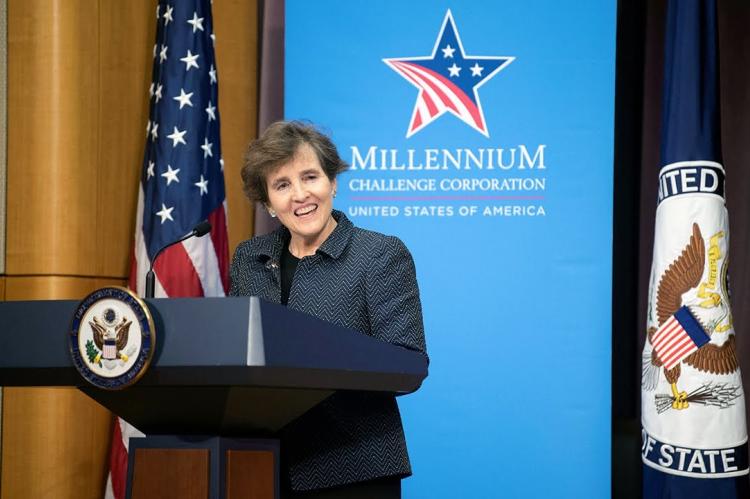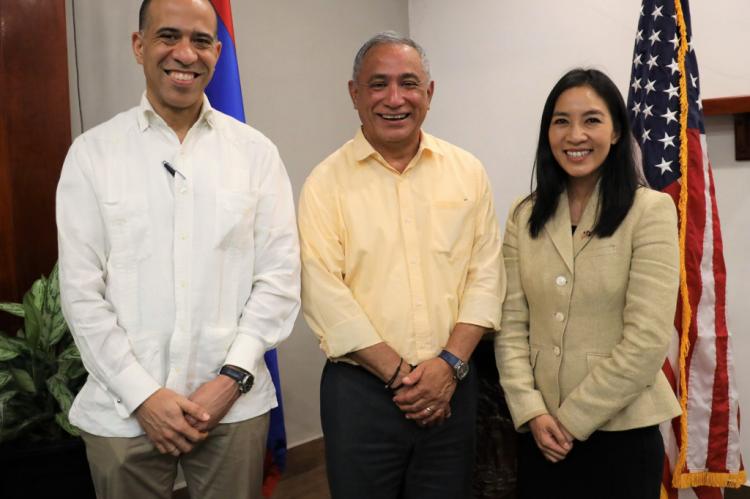Foreign Influence Through Aid: Navigating Belize’s Delicate Balancing Act
By: Omar Silva
Editor: National Perspective Bz - Digital 2025
Belize City: Friday, 3rd January 2025
Introduction
The perception of foreign powers exerting influence on Belize through financial aid and policy changes is a growing concern for many Belizeans. Recent developments, such as the renaming of the Domestic Violence Unit to the Gender-Based Violence Response and Investigative Unit and the Women’s Department to the Family Support and Gender Affairs Department, have sparked debates about whether these changes reflect Belize’s evolving needs or external pressures tied to foreign assistance. With a history rooted in conservative values, Belize now faces the challenge of balancing its cultural and religious identity with global expectations of inclusivity and human rights.
- This article examines the nuances of this issue, analyzing the role of foreign aid, the implications of policy shifts, and the broader societal impacts.
Policy Changes and Their Implications
The recent rebranding of key governmental units signals a shift towards more inclusive language and frameworks. The Belize Police Department’s decision to rename the Domestic Violence Unit to the Gender-Based Violence Response and Investigative Unit was explained as an effort to broaden the scope of protection for all individuals, regardless of gender or sexual orientation. Similarly, the Cabinet-approved renaming of the Women’s Department to the Family Support and Gender Affairs Department reflects an emphasis on inclusivity and family-centered services.
While these changes are positioned as necessary updates to reflect modern challenges, many Belizeans view them as externally motivated, aligning with global discourses promoted by entities such as the United Nations and international donors. These adjustments are often tied to financial assistance packages, where compliance with broader concepts of equality and inclusion is expected.
The Role of Foreign Aid
Foreign aid, while crucial for many developing nations, often comes with strings attached. The Millennium Challenge Corporation (MCC), USAID, and UN-affiliated bodies, for example, frequently link financial assistance to governance reforms, human rights advancements, and inclusivity measures. For Belize, these conditions manifest in policies that promote gender equality and LGBTQ+ rights.
This conditionality fosters the perception that Belize’s sovereignty is being compromised. The renaming of government departments, while seemingly innocuous, is seen by some as a gateway to further external influence. The language used mirrors that of global human rights frameworks, leading to suspicions that these changes serve donor priorities more than local needs.
Balancing Cultural Values with Global Norms
Belize’s strong cultural and religious roots, shaped by traditional views of gender and family, often conflict with evolving global standards. Historically, Belize has adhered to conservative values encapsulated by the “Adam and Eve” worldview, which defines gender and marriage in binary terms. However, as international human rights movements gain momentum, Belize faces mounting pressure to modernize its social and legal frameworks.
This clash creates a delicate balancing act. On one hand, embracing inclusivity ensures that all citizens, regardless of gender identity or sexual orientation, have equal access to education, employment, healthcare, and protection under the law. On the other hand, such changes risk alienating significant segments of the population who feel their beliefs and traditions are under attack.
The Perceived Impact of External Pressures
For many Belizeans, the timing and language of these policy shifts coincide too neatly with foreign funding agreements to be mere coincidence. The introduction of LGBTQ+ topics into national dialogues and the rebranding of government departments are interpreted as evidence of external arm-bending. The concern is not limited to policy changes; it extends to fears of cultural erosion and loss of national identity.
Foreign aid’s association with policy changes, especially those perceived as socially transformative, exacerbates these fears. While donors like the MCC emphasize governance and inclusivity as prerequisites for funding, the public’s perception often skews towards seeing these requirements as infringements on sovereignty rather than opportunities for growth.
True Inclusion: A Path Forward
The key to addressing these concerns lies in fostering a nuanced understanding of inclusion. True inclusion does not seek to erase traditional values but rather creates space for multiple perspectives to coexist. Policies must aim to protect marginalized groups while respecting the cultural and religious fabric of Belizean society.
This requires transparent communication from policymakers, who must articulate the local benefits of such reforms. For instance, expanding the focus of the Domestic Violence Unit to gender-based violence ensures protection for male victims and LGBTQ+ individuals, without diminishing the unit’s support for traditional families. Similarly, the rebranding of the Women’s Department highlights its broader mandate to support all families, signaling progress rather than capitulation to foreign demands.
Recommendations for Navigating Foreign Influence
To balance domestic values with global expectations, Belize must:
Foster Transparent Communication: Clearly explain the rationale behind policy changes, emphasizing their local relevance and benefits rather than framing them as externally driven.
Engage Local Voices: Facilitate dialogue between policymakers, religious leaders, human rights advocates, and community members to build consensus on reforms.
Ensure Domestic Ownership: Design and implement policies that reflect Belize’s unique challenges and priorities, demonstrating that changes are homegrown solutions rather than imposed mandates.
Frame Inclusion as Human Dignity: Position reforms as efforts to enhance dignity and reduce discrimination, not as attacks on traditional values.
Avoid Overreach: Gradually introduce reforms to avoid alienating large segments of the population, fostering acceptance through education and engagement.
Conclusion
Belize’s journey toward inclusivity and modernization is fraught with challenges, not least of which is the perception of foreign influence through aid. While external funding plays a critical role in the nation’s development, the government must ensure that policies serve Belizean interests first and foremost. By fostering transparent dialogue, respecting cultural values, and emphasizing the dignity of all citizens, Belize can navigate this complex landscape without compromising its identity.
The challenge lies in finding a balance—one that protects the rights of all Belizeans while preserving the nation’s rich cultural heritage. The path forward is not about choosing between tradition and progress but about ensuring that both coexist in a way that strengthens the fabric of Belizean society.
- Log in to post comments


